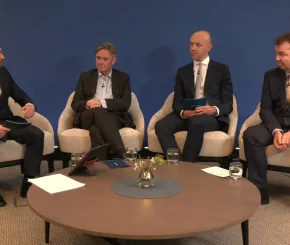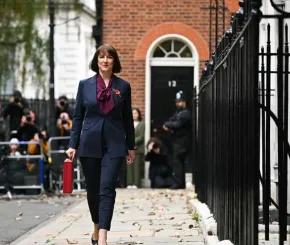Beyond the headlines, what does the Autumn Budget really mean for you and your clients?
Tax-free retirement cash and the upcoming Budget
Tax-free pension cash faces scrutiny ahead of the Budget – explore what might be changing and how advisers can help clients stay retirement-ready.

Article last updated 13 January 2026.
What’s in the news?
According to the Financial Conduct Authority’s retirement income study, UK pension savers took more than £70bn out of their retirement pots in 2024/25, an increase of 36% on the previous year.
Figures like this could well be the cause of all the fears in the headlines about a possible reduction or outright abolition of tax-free pension cash, in the run-up to the Budget on 26 November.
Ordinarily, from age 55 (age 57 from April 2028), up to 25% can be drawn – to a maximum of £268,275 – of a pension tax-free. For people nearing retirement or already retired, changes to tax-free cash could have a big impact on intentions to spend on expensive plans like a round-the-world holiday, or for practical plans such as repaying mortgages and helping loved ones.
Pension rules have changed a fair few times in the UK. However, past moves have generally come with a grace period before they’re implemented, allowing protection of pension plans already in place. So even if the Chancellor were to pull the tax-free cash rug out from under savers’ feet – or reduce how much can be taken out – we expect them to be given time. This time can be used to make informed decisions, based on what’s right for the individual.
The talk about tax-free cash changes this time last year prompted many to withdraw cash from their pensions in anticipation of a Budget announcement that never came. After the Budget, many tried to put the tax-free cash back by using the 30-day cancellation rule, which – depending on the provider’s terms and conditions – allows a decision to be retracked. Such is the talk again this year that the regulator, the Financial Conduct Authority, issued a statement in September clarifying that if tax-free cash is withdrawn from a pension, that decision can’t be cancelled. The message: this decision should be made very carefully.
“Rumours about the reduction or removal of tax-free cash have cropped up during every one of my 20-plus years in the industry,” says Rebecca Williams, Financial Planning Divisional Lead at Rathbones. “With public approval ratings for the government in freefall, the Treasury should think twice before entertaining what would be a hugely unpopular move to reduce or remove the right to tax-free cash.” As well as being politically difficult, this wouldn’t raise any immediate tax revenue to plug the growing black hole of government finances.




